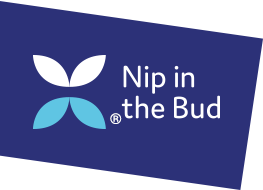Watch our Films
Rachel – Life as a SENCO
In this 13-minute interview Rachel, the SENCO explains that Parents are often the first to notice if their child might be struggling. This might come to light when they’re watching their child in playgroups. A nursery teacher can pick things up too. She highlights the importance of the check that is done by a health visitor when the child is two years old.
Building Trust with your Children – Dr Bettina Hohnen
Early Intervention starts at home. Forging a close talking and listening relationship with your child is invaluable. Watch the full interview 10-minute interview with Dr Bettina Hohnen, Clinical Psychologist, where she explains how, by having routine conversations, parents can learn to differentiate between children’s normal variations in emotions in everyday life as opposed to a potential mental health issue.
Early Intervention 1: Does my child Need help?
The first step is for a Parent to make time to have conversations with the child, to talk, to listen and to build trust in a stress-free setting. Clinical psychologist Dr Bettina Hohnen gives examples of how to develop good communication and to involve the school and a GP.
To hear more from Dr Bettina Hohnen watch our film, Building Trust with Your Children.
Early Intervention 2: How can the school help?
Parents can benefit from speaking to teaching staff so they can discuss the child from each of their different points of view. The school might suggest involving the SENDCO (Special Educational Needs and Disabilities Co-ordinator) who is trained to deal with a variety of concerns such as behaviour, anxiety, speech and language, learning or sensory needs.
Early Intervention 3: How can the GP help?
Dr Julia Thomas explains the kind of symptoms the parent might see in a child who might have a mental health condition. And why it’s important to, as soon as possible, seek help from a GP or someone at the practice who understands children’s mental health and special needs. She encourages parents to keep a diary and share as much information as they can to deal with Early Intervention.
Early Intervention 4: How to apply for an EHCP (Education Health & Care Plan)
If the discussion between parents, the school and the GP establish that the child has special needs, this film explains how the parents, SENCO and Teacher might discuss how to apply for an Educational Health and Care Plan (EHCP) and what evidence can be provided to be eligible for this funding. You will hear information from an Educational Psychologist and a SENCO (Special Educational Needs Co-ordinator)

